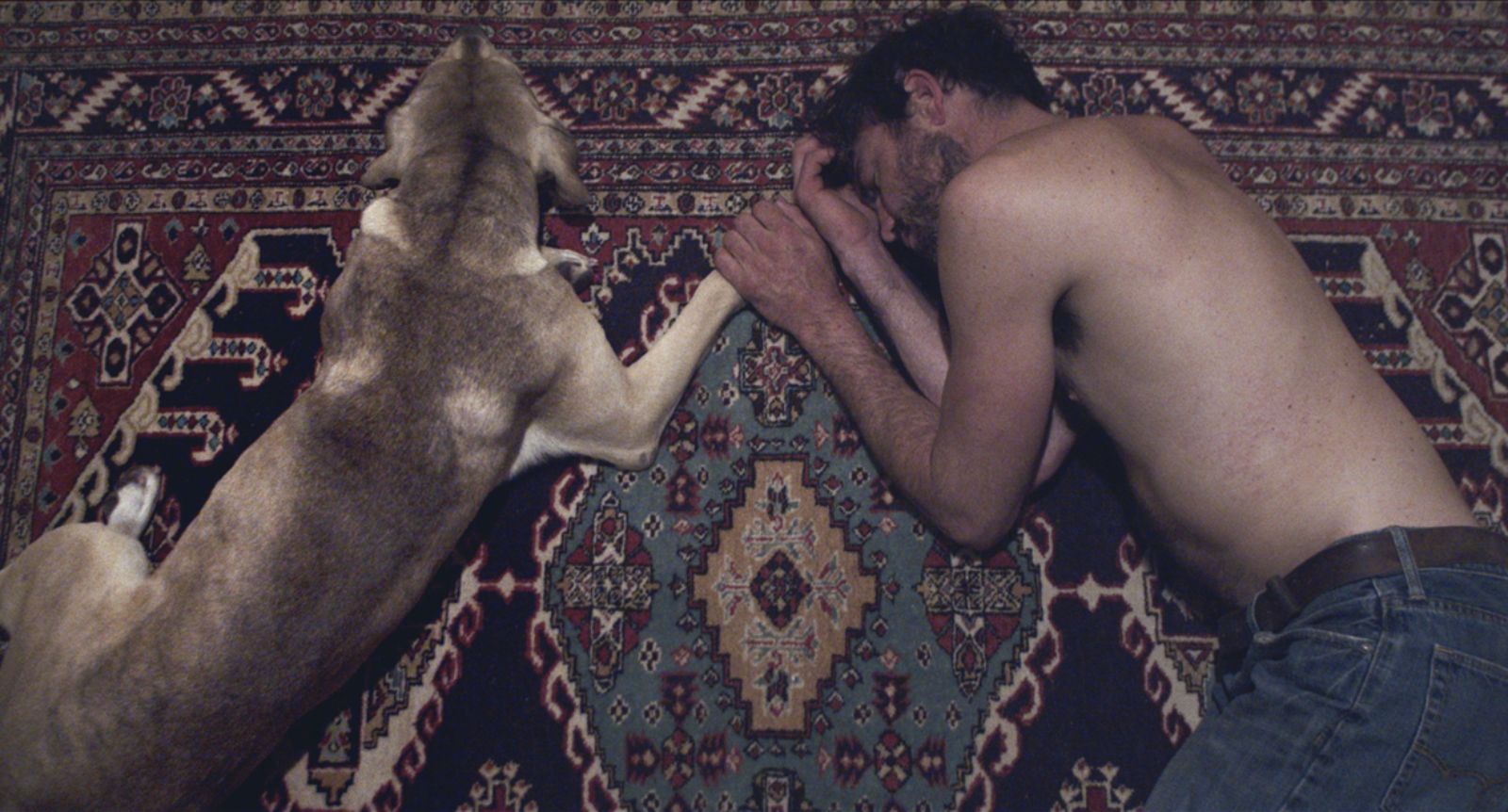Late into Bianca Lucas’ feature debut, a character ventures a few verses: “Listen to the moan of a dog for its master / That whining is the connection / There are love dogs no one knows the names of / Give your life to be one of them.” Lucas does not reveal the author; the character, Beck (Becca Begnaud), says she forgot who the words belong to. As a matter of fact, they’re the final lines of 13th-century Persian poet Rumi’s Love Dogs, the poem that lends this sorrowful meditation its title and cumulatively cathartic power. Like Rumi’s text, which unfurls as a plea to find meaning and solace in sadness, Love Dog follows a man trying to process and survive an unimaginable loss. It’s that rare film that manages to be both unbearably vivid in its depiction of grief and resolutely immune to misery porn. There are scenes orphaned by an almost unspeakable anguish, but Lucas’ fly-on-the-wall, restrained approach lends her tale authenticity and affection. Love Dog does not sensationalize despair; it builds a fortress from which its heartbroken protagonist can slowly begin to embrace and overcome it.
That man is John (John Dicks), a bearded, disheveled thirty-something who first graces the screen on his way back to the native grounds of Natchez, Mississippi. Shot by Jozefina Gocman in a bleached, almost color-scrubbed palette––the bayous forever shrouded in mist, the skies the same immutable shade of grey, and rain constantly sluicing down windows––Love Dog announces itself as a mournful tale long before we get to know where and what John’s fleeing from. Lucas, who wrote the script with Dicks, doles out clues slowly. We’re told that John once worked in an oil rig in Texas, that he lived there with his girlfriend, Charlotte, and finally, 30 minutes into his homecoming, that Charlotte took her life.
But Lucas and Dicks place John’s tragedy within a much larger tapestry of sorrows. A funereal cousin to American Graffiti’s DJ Wolfman Jack guides his lone car rides, turning desperate letters by fellow grief-struck Americans into songs. We hear of people drowning in the gig economy, of victims of the opioid epidemic, and then of course the COVID crisis (the bulk of Love Dog was shot in 2020, and temporal markers from the pandemic bob up throughout). John’s not alone, the film and radio show keenly remind us, but this remains his story. He’s a shell-shocked man who’s resigned himself to a physical and emotional lockdown.
Back in Natchez he’s hired by an invisible landlord to housesit his desolately spacious, unfurnished house by the Mississippi river, a retreat only rarely interrupted by the occasional visit from a friend. Gocman amplifies the scorching solitude by disrupting the traditional focal points. Oftentimes the edges of her images are blurred; other times it’s the center of the frame, a strategy that offers a visual translation to John’s grief-fueled tunnel vision. Even when the man does interrupt his solitary stint, Lucas favors shots/reverse shots that keep characters apart and undercut the short-lived moments of communion with friends and strangers. Only later––much, much later––will Gocman let him share the same frame with another human being; it’s at that crucial juncture, a chaste dating app rendezvous with a young woman who’s possibly lonelier than he is, that Love Dog gestures at the first timid flicker of hope for its drifter.
In an interview with Senses of Cinema, Lucas has stated all dialogues in Love Dog were improvised, and nowhere does this feel more evident than the several Chatroulette segments which see John interact with other loners in a roundelay of online dates. The unscripted quality adds another layer of authenticity to the proceedings––even as this means some exchanges drag longer and reveal less than others. It also speaks to Love Dog’s observational flair. Lucas studied under Béla Tarr at the now-defunct Sarajevo film.factory, and her feature debut, with its long takes and near-documentarian approach, sponges something of the Hungarian’s own blend of slow cinema. Yet there’s nothing derivative about Love Dog, no sense of cinematic detritus and trite references suffocating this story, no cheap redemption arcs or platitudinous choices. Lucas understands grieving as an elliptical process, and editors Omar Guzmán and Greg Karpinski literalize this by making time blurry, leaving you uncertain as to the actual length of John’s exile. Even the few times the film rewinds to moments of intimacy with Charlotte, the snippets don’t register as hackneyed flashbacks but silent flashes of memory John’s still wrestling with, at once tragically attracted to and terrified of them.
That Lucas’ filmmaking never draws attention to itself might be the film’s greatest virtue, and the reason why John’s portrait winds up radiating so much empathy. “Death is natural,” Beck muses before quoting Rumi, “we have to accept this.” It’s a self-evident truth that in the hands of a lesser director would have come across as a trite cliché. And yet here it bursts forth as an exhilarating epiphany––a testament to all the honesty Lucas has poured into this engrossing, unflinching study of mourning.
Love Dog screened at the Cyprus Film Days International Festival.

